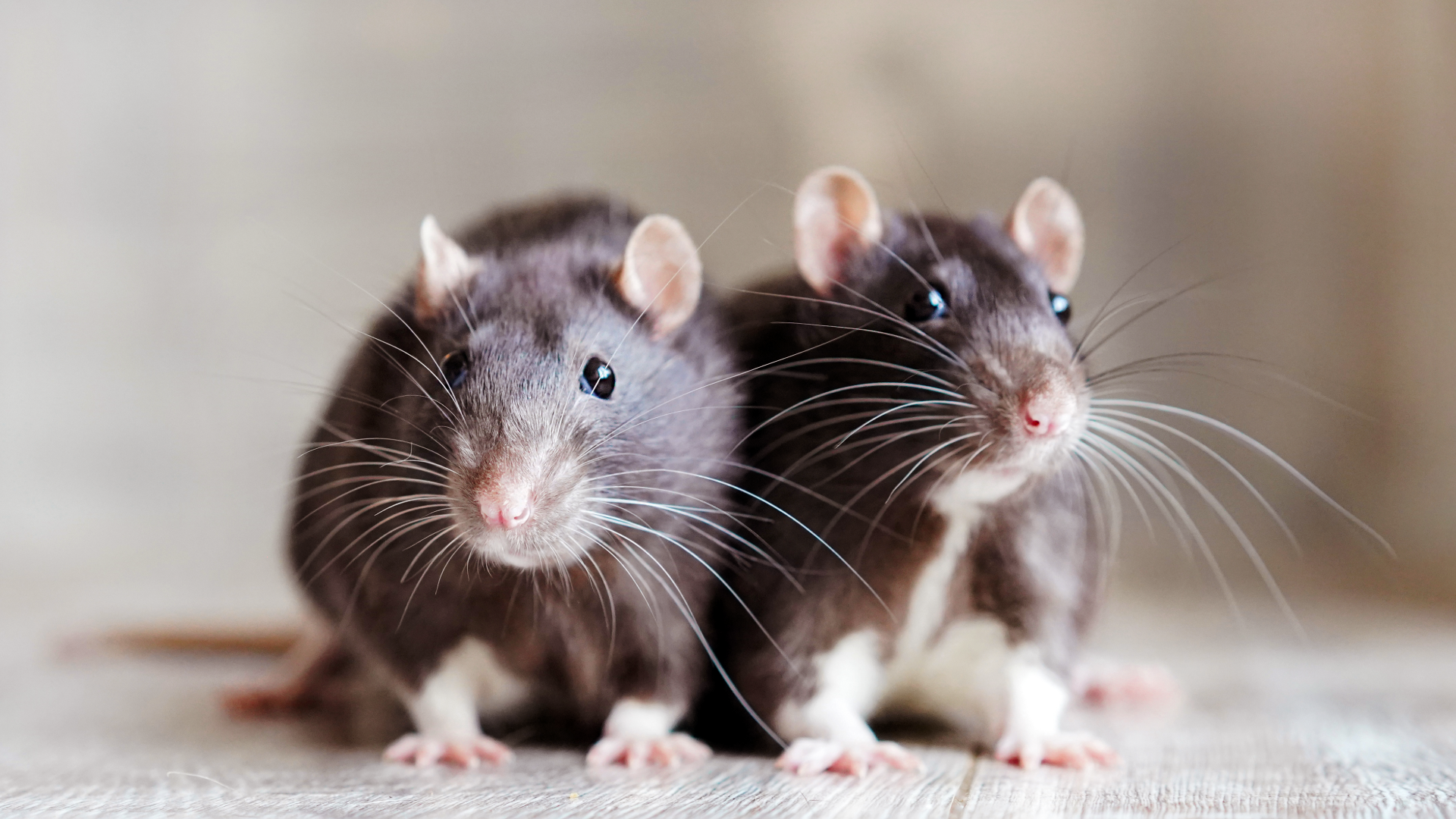Caring for your Pet Rat
Domesticated Pet Rats
(Rattus norvegicus domesticus)
Basic Information:
Pet rats are intelligent, social, and affectionate small mammals that thrive on companionship and interaction. They are descendants of the Norway rat, selectively bred for calm temperaments and a wide variety of colors, coat types, and patterns. Popular varieties include Standard, Dumbo, Rex, Double Rex, and Hairless. Rats are highly trainable, often learning their names, coming when called, and even performing tricks. Their curious and playful personalities make them engaging companions for dedicated keepers.
Lifespan:
2-3 years in captivity with excellent care.
Sexing:
Males are typically larger and more muscular, while females are smaller and leaner. Sex can be distinguished visually by genital spacing, but it is always best to have rats sexed before adoption to prevent accidental breeding.
Enclosure:
Provide horizontal and vertical space for climbing, multiple levels, and enrichment. Solid flooring is preferred to prevent foot injuries. Include natural wood chews, tunnels, hammocks, ropes, ladders, and foraging toys. Rats are highly active and benefit from frequent cage rearrangement for stimulation.
Minimum Size: 24” x 18” x 24” cage, though larger multi-level cages are strongly recommended.
Substrate:
Use paper-based bedding, aspen shavings, or fleece liners. Avoid pine and cedar shavings, as the aromatic oils can cause respiratory irritation. Spot clean daily and perform a full clean weekly to maintain a healthy environment.
Lighting & Temperature:
Maintain a 12-hour light/dark cycle using natural room light or indirect lighting.
Ideal room temperature should remain between 65–75°F. Keep the enclosure away from drafts, direct sunlight, heaters, or air vents to prevent stress or illness.
Food:
Feed a base of high-quality lab blocks or rat-specific pellets. Supplement with fresh vegetables, leafy greens, and occasional fruits. Small amounts of healthy treats like cooked grains, eggs, or unsalted nuts can be offered for training. Fresh, clean water should always be available, preferably through a sipper bottle.
Socialization:
Rats are highly social and should always be kept in pairs or small same-sex groups to prevent loneliness. They thrive on daily human interaction and love to climb on shoulders, explore, and engage in play. With gentle, consistent handling, they quickly bond with their keepers. Providing enrichment such as puzzle feeders, exercise wheels (solid surface only), and supervised free-roam time helps prevent boredom and promotes natural behaviors.
Note on Varieties:
Hairless rats may require extra warmth and softer bedding to protect their exposed skin. Rex and Double Rex rats naturally have curly or patchy coats, which is normal and healthy.
Curious, clever, and deeply affectionate, rats make wonderful pets for those willing to provide daily interaction and a stimulating environment. Their intelligence and strong social bonds make them one of the most rewarding small mammals to keep as companions.


